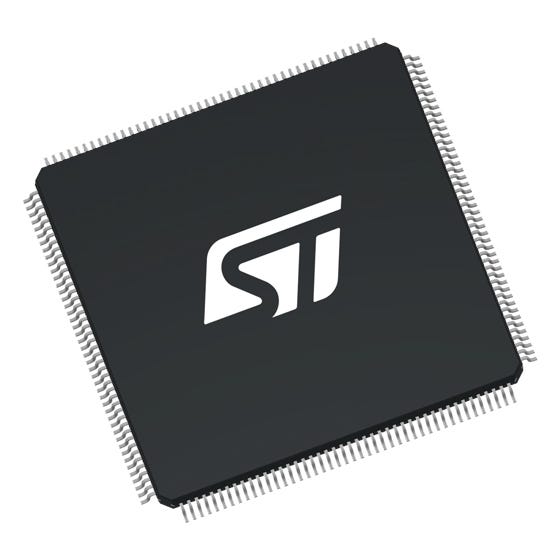📢 $9.99 flat rate shipping in EMEA countries! Ends May 15th - Don't Miss Out!. 🛒 Shop now
Active
SPC564A70L7CFAR
32-bit Power Architecture MCU for Automotive Powertrain Applications
| Operating Range | Automotive |
| Supply Voltage Min Volt | 4.5 |
| Supply Voltage Max Volt | 5.5 |
| Operating Temp Min Celsius | -40.0 |
| Operating Temp Max Celsius | 125.0 |
| Core | e200z4d |
| ECCN US | 5A991.b.4.a |
| ECCN EU | NEC |
| Packing Type | Tape And Reel |
| RoHs compliant | Ecopack2 |
| Grade | Automotive |
| Package Name | LQFP 176 24x24x1.4 mm |
This microcontroller is a 32-bit system-on-chip (SoC) device intended for use in mid-range engine control and automotive transmission control applications.It is compatible with devices in ST's SPC56xx family and offers performance and capability above that of the SPC563M devices.The...
Read More
|
| Operating Range | Automotive |
| Supply Voltage Min Volt | 4.5 |
| Supply Voltage Max Volt | 5.5 |
| Operating Temp Min Celsius | -40.0 |
| Operating Temp Max Celsius | 125.0 |
| Core | e200z4d |
| ECCN US | 5A991.b.4.a |
| ECCN EU | NEC |
| Packing Type | Tape And Reel |
| RoHs compliant | Ecopack2 |
| Grade | Automotive |
| Package Name | LQFP 176 24x24x1.4 mm |
This microcontroller is a 32-bit system-on-chip (SoC) device intended for use in mid-range engine control and automotive transmission control applications.It is compatible with devices in ST's SPC56xx family and offers performance and capability above that of the SPC563M devices.The...
Read More
|



